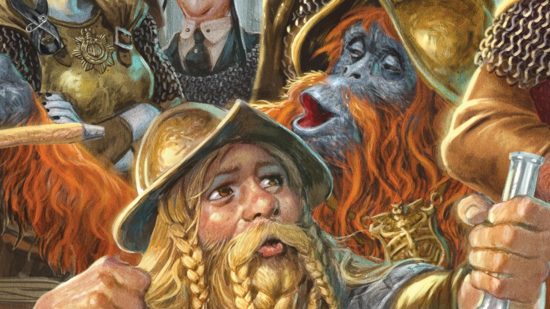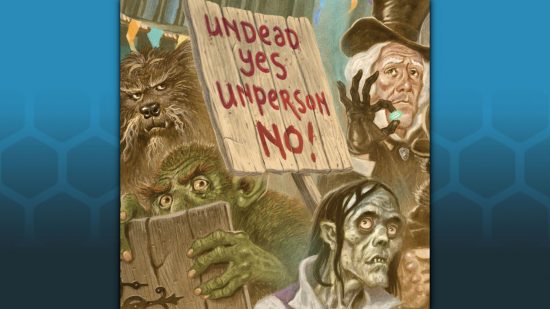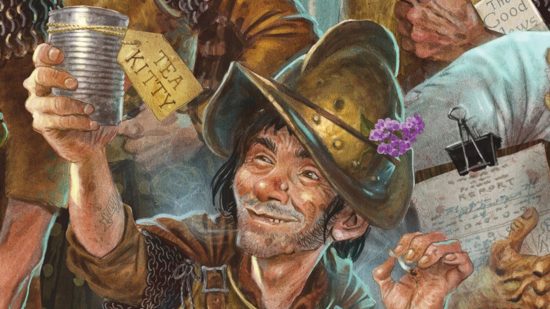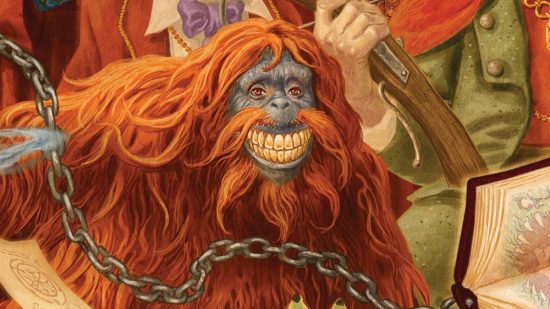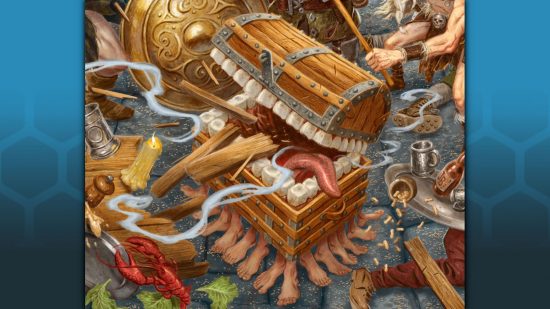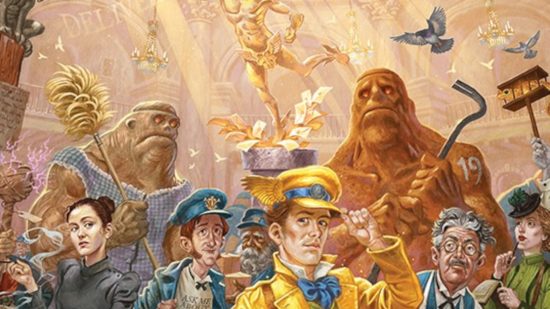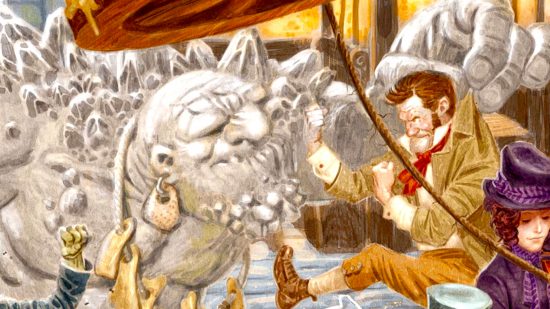Modiphius’ new Discworld tabletop RPG will include a selection of playable races from Terry Pratchett’s fantasy novels, starting with those most commonly found in the central city of Ankh-Morpork, the publisher’s founder Chris Birch confirms to Wargamer.
“In terms of playable races, we’ll be look at who the races are that you see in the city,” he tells us as part of an in-depth video interview, with much discussion of race which you can read below.
“Much like any roleplaying game, we probably won’t put them all in the core book,” he adds. “It’ll be: here’s the obvious ones that are fun. In another supplement, we might have more.”
Birch carefully makes no promises – the Discworld RPG core book coming to Kickstarter in late 2024 is still extremely early in development and Modiphius has a lot of different ideas in contention.
However, we’d confidently expect rules to play as Humans, Dwarfs, and Trolls – all are plentiful in Ankh-Morpork, and core to so many of the books’ plots that their omission would be a surprise.
Beyond that, we’re in realms of pure speculation – but centering the game on Ankh-Morpork gives us at least a bit of a steer.
Undead humans like Vampires, Ghouls, and Zombies all feature heavily in Ankh-Morpork stories, as do Golems – Modiphius is keeping schtum, but we hold out hope they’ll be playable.
We suspect the rarer or far-flung races like the Goblins, extra-terrestrial Elves, or the Frankenstein’s Monster-inspired Igors of Überwald, are more likely to appear in later expansions, if at all.
The Ankh-Morpork city watch’s infamous Corporal ‘Nobby’ Nobbs is canonically a member of his own unique species, having been “disqualified from the human race for shoving” – but, since famous characters aren’t getting stats, we can assume players won’t be stepping into his revolting boots anytime soon.
For the same reason, we probably won’t be playing as The Librarian – a permanently transmogrified human wizard who is also, undeniably and proudly, an orangutan – or The Luggage – a living trunk with human feet and teeth, which is part of a full species, but one which lives impossibly far away on the fabled Counterweight Continent. Their roles in the RPG remain unclear.
We’ve already revealed some gold from our interview with Birch about the hefty design challenges Modiphius faces with its latest RPG – including the possibility of a procedurally generated Ankh-Morpork.
But getting the weird and wonderful Discworld races right is one of the toughest puzzles the team will have to solve, Birch tells us.
Where the ubiquitous DnD races have (until recently) been cut-and-dried, morally uncomplicated caricatures, from the Discworld series’ beginnings in 1983, Pratchett consistently used his sentient fantasy creatures to weave cutting parodies of real-world human racist stereotypes and prejudices.
DnD goblins, for example, (despite recent rules changes) remain, at most tables, primarily simple, hostile DnD monsters it’s OK to hate and kill.
The Discworld goblins we meet in the 2011 Pratchett novel Snuff, meanwhile, are unambiguously shown as people, and the plot used to demonstrate that it’s not OK to hate or kill living, thinking beings just because they look weird and their culture is alien to yours.
These aren’t the sort of themes Dungeons and Dragons or other mainstream tabletop RPGs have traditionally been adept at conveying.
“The question about parodying racial stereotypes is: how do you get that into the game so it’s clearly a parody?” says Birch. “And there are ways of doing that, but you’ve got to be careful that it’s not just seen as: racial stereotypes.”
“The other way of doing it is to say it has no mechanical effect, it’s just story,” Birch adds.
“In Dreams and Machines, our new RPG, we’ve got this faction called the Spears, who have a lot of disabilities. So they might have breathing difficulties, replacement limbs, and there’s no mechanical benefit for having, say, a powered arm at all. You’re just the same as anyone else.
“So if you want to have that because you’ve got one in real life, or you just want to play a character who has disabilities, you’re not suffering from it, and you’ve got no bonuses either.”
That approach has great advantages – but some potential flaws when it comes to the Discworld species.
Pratchett often used very real biological differences between his races – like the goblins’ small, scraggly green physiques, or the hulking, sentient stone trolls, whose IQ skyrockets in cold temperatures – to poke fun at the ridiculous, trumped-up excuses real humans use to hate each other: skin color, gender, sexuality, and so on.
If even the most ordinary, conservative humans – like Sergeant Colon and Corporal Nobbs (human certificate pending) can make common cause with a werewolf, a gender-nonconforming Dwarf, and a nine-foot-tall walking, talking boulder, Pratchett’s books ask us: what the hell excuse have you got to think of other humans as lesser for being a different color, or living as a boy or girl when you think they’re not one?
The Disc’s supercharged version of ‘different, but the same’ is a vital ingredient in Pratchett’s work, but we suspect it’ll be incredibly hard to fully replicate in RPG design, regardless of the extent to which those physical differences are represented mechanically – and Birch is with us on that one.
“Oh, it is,” he agrees. “The question is, can you do it in a clear and obvious way, that brings out what Terry wanted in those stereotypes?” he adds – “and how complex do we want it to be?”
“Is a character a bunch of keywords? Are there different numbers for different abilities in there? Do you get X on a cold day, but Y on a hot day?
“That’s all part of the dial of: does that make you feel more like you’re in the Discworld, or does it take away from it, because you’re thinking too much about the numbers?
“I’ll be seeing what the team come up with, and I’m sure we’re going to have some amazing ideas.”
Terry Pratchett’s Discworld: Adventures in Ankh-Morpork core book will be funding on Kickstarter starting in late 2024, initially releasing a core book, with expansions to follow. The publisher is running a fan survey to collect info on the game’s audience, and players’ ideas on what the game should be like.
We’ve one last nugget of news to reveal tomorrow, and then you’ll be able to read our interview with Chris Birch in full.
In the meantime, by way of comparison, why not read our full guides to the DnD classes and the most famous DnD settings? We’ve even catalogued the most important DnD languages and DnD cities, too.
This story was updated on March 7, 2024.
